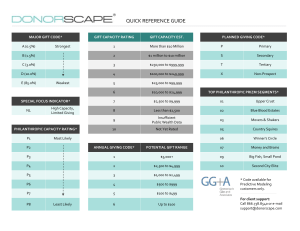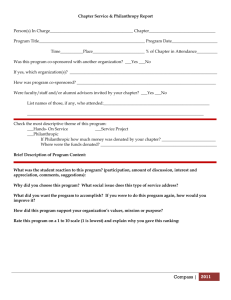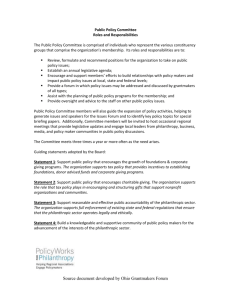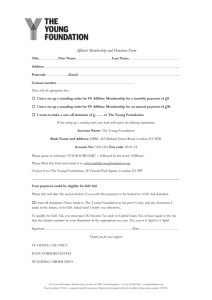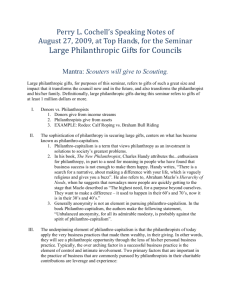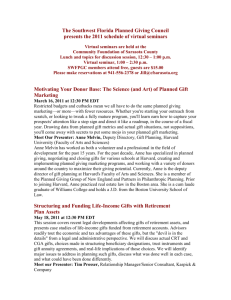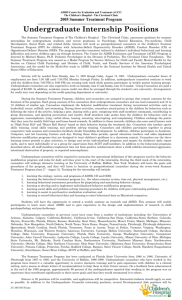My Philanthropy - Sites at Penn State
advertisement
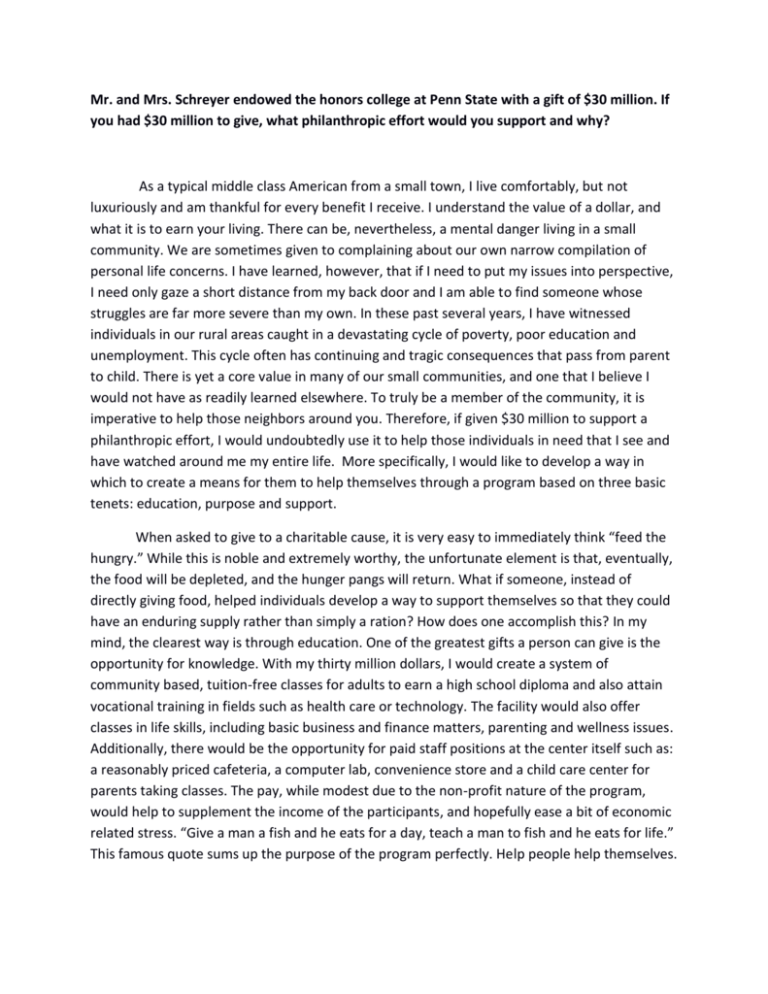
Mr. and Mrs. Schreyer endowed the honors college at Penn State with a gift of $30 million. If you had $30 million to give, what philanthropic effort would you support and why? As a typical middle class American from a small town, I live comfortably, but not luxuriously and am thankful for every benefit I receive. I understand the value of a dollar, and what it is to earn your living. There can be, nevertheless, a mental danger living in a small community. We are sometimes given to complaining about our own narrow compilation of personal life concerns. I have learned, however, that if I need to put my issues into perspective, I need only gaze a short distance from my back door and I am able to find someone whose struggles are far more severe than my own. In these past several years, I have witnessed individuals in our rural areas caught in a devastating cycle of poverty, poor education and unemployment. This cycle often has continuing and tragic consequences that pass from parent to child. There is yet a core value in many of our small communities, and one that I believe I would not have as readily learned elsewhere. To truly be a member of the community, it is imperative to help those neighbors around you. Therefore, if given $30 million to support a philanthropic effort, I would undoubtedly use it to help those individuals in need that I see and have watched around me my entire life. More specifically, I would like to develop a way in which to create a means for them to help themselves through a program based on three basic tenets: education, purpose and support. When asked to give to a charitable cause, it is very easy to immediately think “feed the hungry.” While this is noble and extremely worthy, the unfortunate element is that, eventually, the food will be depleted, and the hunger pangs will return. What if someone, instead of directly giving food, helped individuals develop a way to support themselves so that they could have an enduring supply rather than simply a ration? How does one accomplish this? In my mind, the clearest way is through education. One of the greatest gifts a person can give is the opportunity for knowledge. With my thirty million dollars, I would create a system of community based, tuition-free classes for adults to earn a high school diploma and also attain vocational training in fields such as health care or technology. The facility would also offer classes in life skills, including basic business and finance matters, parenting and wellness issues. Additionally, there would be the opportunity for paid staff positions at the center itself such as: a reasonably priced cafeteria, a computer lab, convenience store and a child care center for parents taking classes. The pay, while modest due to the non-profit nature of the program, would help to supplement the income of the participants, and hopefully ease a bit of economic related stress. “Give a man a fish and he eats for a day, teach a man to fish and he eats for life.” This famous quote sums up the purpose of the program perfectly. Help people help themselves. The next fundamental component in the program is purpose. After completing necessary classes offered, the center would assist the graduates in finding jobs to match their skills and needs. In America, a common debate in the political arena is the topic of governmental public assistance. Some paint the picture of citizens that simply sit and do nothing while self-declared “hard working Americans” pay taxes to fund the former’s indolence. Whether this is an accurate picture of a portion of America’s citizens is not for me to say, but I would submit that people are more motivated in their work when they have a true sense of personal investment in the work being performed. To assist members in the quest for a purposeful job, employment counselors would be available to provide guidance and support. These counselors comprise a significant part of the support component of the facility. A center that provides educational opportunities and purpose-finding-counsel is a good thing, but it can be only as effective as the participants allow it to be. People cannot be forcefed knowledge, nor can they be required to find a rewarding source of income, but they may be able to be persuaded. The third element of the program, support, is left squarely on the shoulders of those of us who would organize and operate the center. Ideally, the staff would be composed of volunteers with specialties in their areas of expertise, whether it is teaching, counseling or even parenting. These positions could be marketed as rewarding ways to give back to the community for recently retired teachers, counselors and other “empty-nesters.” Asking for volunteers rather than offering paid positions would also ensure that the faculty honestly cared about the members, and I believe this concept would bring much more success to the program. It is a true and wise teaching that the greatest gift is love, and there would certainly be love in this establishment. If I ever do have the opportunity to spend $30 million on a philanthropic effort, it would surely be this center I have conceived. This facility would not be just a thirty million dollar donation to someone in need, it would be a seed planted that would eventually bear fruit long after the initial quantity of monetary donation reached its expiration. By assisting one human in obtaining the means to produce for him or herself, we also enable that person to pass on this knowledge to others. This domino effect would allow me not only to help those in my backyard, but to then allow those people to assist others and pay the favor forward. This quality is my central and most important rationale in proposing this plan. Knowledge is truly the gift that keeps on giving, and what better way for me to take care of those needy neighbors so close to me.
